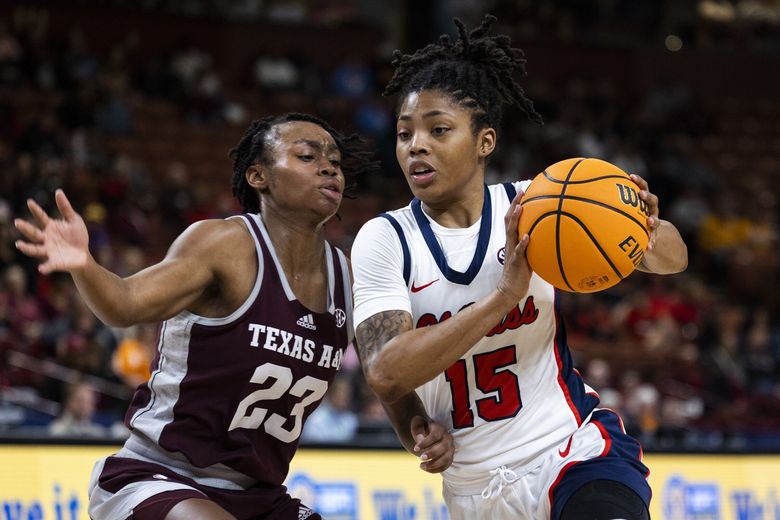SPG in basketball stands for Steals Per Game, which measures the average number of steals a player or team gets in each game. It is a statistic that demonstrates defensive prowess and a player’s ability to disrupt the opponent’s offense.
Stealing the ball can lead to turnovers and scoring opportunities for the team. Basketball is a highly dynamic and fast-paced sport that requires a combination of offensive and defensive skills. Various statistics are used to measure player performance and impact on the game.
One such statistic is steals per game (SPG), which quantifies the number of times a player successfully steals the ball from the opposing team. SPG is an essential component of defensive skills evaluation and is often used to gauge a player’s ability to disrupt the opponent’s offense. We will explore what SPG means in basketball and its significance in analyzing defensive contributions.
Table of Contents
ToggleUnderstanding SPG in Basketball
Basketball is a game filled with various statistics that help us measure a player’s performance on the court. One of these important statistics is SPG, which stands for Steals Per Game. Steals can completely change the momentum of a game, turning defense into offense in the blink of an eye. In this blog post, we will dive deeper into the definition of SPG, its importance in basketball, and how it impacts the outcome of a game.
Definition Of Spg And Its Importance In Basketball
Steals Per Game, abbreviated as SPG, is a statistical measurement that quantifies the number of steals a player averages in a single game. A steal occurs when a defensive player takes possession of the ball from an opposing player, without committing a foul. SPG is an important metric as it reflects a player’s defensive skills, basketball IQ, and ability to disrupt the opponent’s offense. In the game of basketball, steals have a significant impact on the outcome. When a player successfully steals the ball, it not only denies the opposing team a scoring opportunity but also gives their own team possession. This sudden shift in possession can lead to fast breaks, transition offense, and potentially easy scoring opportunities. The ability to anticipate passes, read the opposing team’s plays, and quickly react to steal the ball can change the dynamics of a game.
Role Of Steals In The Game And How It Impacts The Outcome
Steals play a vital role in determining the outcome of a basketball game. They can shift the momentum from one team to another, creating scoring opportunities, and disrupting the opponent’s offensive flow. Here are a few ways steals impact the game: – Transition Offense: When a steal occurs, it often results in a fast break opportunity for the team that stole the ball. The defensive player, after making the steal, can quickly push the ball up the court and find open teammates for easy scoring chances. – Defensive Intensity: Steals are not just about gaining possession; they also contribute to the overall defensive intensity of a team. When players actively try to steal the ball, it puts pressure on the offense and can force turnovers, disrupt plays, and create chaos on the court. – Denying Scoring Opportunities: Steals prevent the opposing team from scoring and can be demoralizing for the offense. It forces turnovers, disrupts offensive rhythm, and frustrates the opponent, which can impact their ability to execute their game plan effectively. – Strategic Tool: Coaches often emphasize the importance of steals as a strategic tool to gain an advantage in the game. A well-timed steal can change the momentum, swing the score in favor of the stealing team, and provide a psychological boost that motivates the team. In conclusion, SPG, or Steals Per Game, is a significant statistic in basketball that measures a player’s ability to steal the ball from the opponent. Steals can impact the outcome of a game by generating fast break opportunities, increasing defensive intensity, denying scoring opportunities to the opponent, and serving as a strategic tool for the team. Successful steals not only contribute to individual player performance but also influence the collective success of the team.

Credit: www.seattletimes.com
Calculating SPG
Formula To Calculate SPG
To calculate Steals Per Game (SPG) in basketball, you can use the following formula: SPG = Total Steals / Total Games This formula calculates the average number of steals a player obtains per game. By dividing the total number of steals by the total number of games played, you can determine a player’s efficiency in stealing the ball from the opposing team.
Factors Considered In Determining Steals
Several factors contribute to a player’s ability to accumulate steals in basketball. These factors include 1. Quickness and agility: Players with exceptional speed and agility can anticipate opposing players’ moves and intercept passes more effectively. 2. Court vision: Good court awareness allows players to read the game, anticipate passing lanes, and make well-timed steals. 3. Defensive skills: Sound defensive techniques, such as proper footwork and active hands, can help players disrupt the offensive flow and create steal opportunities. 4. Basketball IQ: Players with a high basketball IQ can recognize patterns and tendencies, allowing them to anticipate and intercept passes. 5. Defensive pressure: Putting pressure on the ball handler can force mistakes and create opportunities for steals. These factors, combined with a player’s individual skill set, contribute to their steals per game average.
Examples Of Players With High And Low SPG
Some players have consistently demonstrated high SPG throughout their careers, while others may have lower averages. Here are a few examples: Players with high SPG: 1. Chris Paul: Known for his defensive prowess, Paul has consistently ranked among the league leaders in steals per game throughout his career. 2. John Stockton: Stockton holds the NBA record for most steals, showcasing his exceptional defensive skills and ability to read the game. 3. Gary Payton: “The Glove” was renowned for his tenacious defense, making him one of the best steal producers in NBA history. Players with low SPG: 1. Shaquille O’Neal: As a dominant big man, O’Neal’s defensive impact was more focused on shot blocking rather than steals. 2. Dirk Nowitzki: Nowitzki, known for his scoring ability and shooting prowess, didn’t accumulate a high number of steals in his career. These examples demonstrate how different playing styles and positions can influence a player’s steals per game average. In conclusion, calculating SPG in basketball provides valuable insight into a player’s defensive abilities and their impact on the game. Factors such as quickness, court vision, defensive skills, basketball IQ, and defensive pressure all contribute to a player’s steals per-game average. Some players consistently demonstrate high SPG, while others have lower averages based on their playing style and position.
Impact Of SPG On The Game
How Steals Affect Team Momentum And Scoring Opportunities
Steals are one of the most exciting and impactful plays in the game of basketball. They not only disrupt the opponent’s offensive flow but also provide a significant boost to the team’s momentum. When a player successfully steals the ball from the opposing team, it often leads to fast break opportunities and easy baskets. This sudden change in possession and the resulting scoring chances can swing the tide of the game in favor of the team that executed the steal.
Moreover, steals can demoralize the offensive team, as it sends a message that their ball-handling skills are not secure. This can lead to a decrease in confidence, rushed decision-making, and an overall decline in offensive efficiency. On the other hand, the team that consistently generates steals can gain confidence and energy, setting the tone for aggressive defensive play and an increase in scoring opportunities.
Defensive Strategies To Increase SPG
To increase steals per game (SPG), teams and players need to focus on developing their defensive skills and implementing effective strategies. One important technique is to have active hands and good anticipation. By staying in a low defensive stance, keeping their eyes on the ball, and reading the passing lanes, players can predict where the ball will go and position themselves for potential steals.
Another strategy is maintaining constant pressure on the ball handler. By applying intense ball pressure, denying easy passing lanes, and forcing the offensive player into uncomfortable situations, defenders can increase their chances of generating steals. Additionally, effective team communication and coordination are essential for executing double teams, traps, and rotations, all of which can create opportunities for steals.
Examples Of Games Where Steals Played A Crucial Role
Steals have the potential to turn the tide of a game and can be the deciding factor between victory and defeat. Take, for example, the legendary game between the Chicago Bulls and the Utah Jazz in the 1997 NBA Finals. In Game 6, with a series tied at 3-3, it was Bulls’ guard Michael Jordan who famously stole the ball from Jazz’s Karl Malone in the final seconds of the game. Jordan’s steal not only prevented the Jazz from potentially scoring and winning the championship but also set up his iconic game-winning shot that secured the Bulls’ victory.
Another example is the 2004 NBA Finals when the Detroit Pistons defeated the heavily favored Los Angeles Lakers. The Pistons’ relentless defense, led by players like Ben Wallace and Tayshaun Prince, disrupted the Lakers’ offense with their steals and forced turnovers. Their ability to generate steals and convert them into fast break points played a vital role in the Pistons’ upset victory over the star-studded Lakers.
These examples demonstrate the impact that steals can have on the outcome of a game, emphasizing the significance of this aspect of basketball. Whether it is a steal that leads to a breakaway dunk or a steal in a crucial moment that changes the course of a game, SPG has the power to shape basketball history.
Comparing SPG To Other Basketball Statistics
Explanation Of Other Common Basketball Statistics (ppg, Rpg, Apg, Bpg)
Basketball is a game of numbers, and various statistics are used to evaluate player performance. Some of the most commonly used statistics include PPG (points per game), RPG (rebounds per game), APG (assists per game), and BPG (blocks per game). PPG, or points per game, gives us an idea of a player’s scoring ability. It is calculated by dividing the total number of points scored by a player in a season by the total number of games played. PPG helps us determine how effective a player is on offense and their contribution to the team’s overall scoring. RPG, or rebounds per game, reveals a player’s ability to secure missed shots and gain possession for their team. It is calculated by dividing the total number of rebounds a player has in a season by the total number of games played. RPG reflects a player’s ability to control the boards and contribute to their team’s rebounding effort. APG, or assists per game, measures a player’s ability to create scoring opportunities for their teammates. It is calculated by dividing the total number of assists a player has in a season by the total number of games played. APG indicates a player’s playmaking skills and their ability to involve teammates in the offensive play. BPG, or blocks per game, showcases a player’s ability to defend the paint and prevent opponent shots. It is calculated by dividing the total number of blocks a player has in a season by the total number of games played. BPG highlights a player’s shot-blocking prowess and their impact on the defensive end of the court.
Difference Between Steals And Other Statistics
Steals, represented by SPG (steals per game), are different from other statistics like points, rebounds, assists, and blocks. While the other statistics focus on the positive contributions a player makes to their team, steals are all about disrupting the opposing team’s offense. A steal occurs when a defensive player gains possession of the ball from an opponent by intercepting a pass or stripping it away. It is a valuable defensive play that can result in a fast break opportunity for the player’s team. Unlike points, rebounds, assists, and blocks, steals are not directly related to offensive or defensive production. They are more about creating turnovers and disrupting the opponent’s flow. Steals require anticipation, quick reflexes, and solid defensive skills.
The Importance Of Considering Multiple Statistics In Evaluating Players
When evaluating players, it is crucial to consider multiple statistics rather than relying solely on one. Each statistic provides a different aspect of a player’s performance and contributes to their overall value. For example, a player with a high PPG might be an excellent scorer but could have a lower rebounding or assist average. On the other hand, a player with a high RPG might excel in rebounding but could have fewer points or assists. By considering multiple statistics, we can get a more comprehensive picture of a player’s impact on the game. It allows us to understand their strengths and weaknesses, their versatility, and how they contribute to their team’s success. In conclusion, comparing SPG to other basketball statistics helps us understand the unique role steals play in the game. Steals are different from other statistics but still hold significant value in defensive play and disrupting the opposing team’s offense. By considering multiple statistics, we can accurately evaluate a player’s overall performance and their contribution to the team.
Noteworthy Players With High SPG
List Of Players Known For Their Steals Ability
Steals per game (SPG) is a crucial statistic in basketball that measures a player’s ability to snatch the ball away from opponents. It requires not only quickness and agility but also a high basketball IQ to anticipate passes and disrupt the opposing team’s offense. Some players throughout history have excelled in this aspect of the game, earning recognition for their exceptional steals ability. Here are some noteworthy players known for their steals prowess:
- Michael Jordan: The undisputed GOAT, Michael Jordan, displayed his incredible all-round skills with stealing the ball. He led the league in steals per game for three seasons and remains one of the top players in NBA history for steals.
- John Stockton: As the NBA’s all-time leader in steals, John Stockton demonstrated unparalleled anticipation and defensive instincts. His tenacious approach on defense earned him numerous steals titles and a spot in the Hall of Fame.
- Chris Paul: Known for his pesky on-ball defense, Chris Paul consistently ranks among the league leaders in steals per game. His lightning-quick hands and exceptional court vision allow him to disrupt passing lanes and create turnovers.
- Gary Payton: Dubbed the “Glove,” Gary Payton was a defensive powerhouse known for his relentless pressure on the ball. His skillful steals and lockdown defense earned him the NBA Defensive Player of the Year award and a spot on the All-Defensive First Team nine times.
- Kawhi Leonard: Renowned for his impressive two-way play, Kawhi Leonard has established himself as one of the league’s top perimeter defenders. His long arms, quick hands, and strong defensive instincts have made him a formidable steals threat.
- Scottie Pippen: As the ultimate wingman to Michael Jordan, Scottie Pippen showcased his versatility on both ends of the court. His ability to disrupt passing lanes and create turnovers was instrumental in the Chicago Bulls’ success during their championship runs.
Records For Highest Steals Per Game Average In Basketball History
Steals per game records highlight the exceptional performances of players who have consistently dominated in this defensive category. Here are the highest steals per game averages in basketball history:
| Player | Average SPG | Season |
|---|---|---|
| Alvin Robertson | 3.67 | 1985-1986 |
| Tyrone Corbin | 3.32 | 1989-1990 |
| Ricky Rubio | 3.06 | 2013-2014 |
| Alvin Robertson | 3.06 | 1986-1987 |
| John Stockton | 3.21 | 1988-1989 |
Analysis Of How These Players Contribute To Their Teams’ Success
Players with high steals per game averages make significant contributions to their teams’ success through their defensive prowess. Here’s a closer look at how these players impact the game:
- Creating turnovers: Steals disrupt the opposing team’s offense, often leading to fast-break opportunities for the player’s team. By snatching the ball away from opponents, these players create additional possessions for their team, increasing their chances of scoring.
- Defensive pressure: Players with high steals per game averages apply intense defensive pressure on their opponents. This pressure not only leads to steals but also forces opposing players into making mistakes, resulting in turnovers and inefficient offensive possessions.
- Transition offense: Steals often spark fast breaks, allowing the player’s team to score easy baskets in transition. Quick hands and anticipation enable these players to intercept passes and start fast breaks that catch opponents off guard.
- Disrupting rhythm: Steals not only lead to immediate turnovers but also disrupt the offensive rhythm of the opposing team. By consistently making defensive plays, these players force opponents to be more cautious and make quicker decisions, reducing their effectiveness.
Overall, players with high steals per game averages play a crucial role in their teams’ defensive strategies. Their ability to create turnovers and disrupt the opposition’s offense significantly contributes to their teams’ success and helps swing the momentum of games in their favor.
Frequently Asked Questions On What Is SPG In Basketball?
What Does Spg Mean In Basketball Terms?
SPG in basketball terms stands for Steals Per Game. It is a statistic that measures the average number of steals a player or team makes per game.
What Is BPG Basketball?
BPG basketball refers to Blocks Per Game, which is a statistic used in basketball to measure the average number of blocks made by a player per game. It is an important indicator of a player’s defensive skills.
What Are Basketball Stat Abbreviations?
Basketball stat abbreviations include PPG (points per game), RPG (rebounds per game), APG (assists per game), SPG (steals per game), and BPG (blocks per game).
What Is GS In Basketball?
GS in basketball stands for Games Started. It refers to the number of games that a player has been in the starting lineup.
Conclusion
To summarize, SPG in basketball stands for steals per game. It represents the average number of steals a player or team makes per game. This statistic is essential in evaluating a player’s defensive abilities and their ability to disrupt the opposing team’s offense.
Understanding SPG is crucial to analyzing a player’s overall performance and impact on the game. Whether you’re a basketball fan or a player, keeping track of steals per game can provide valuable insights into the game.






